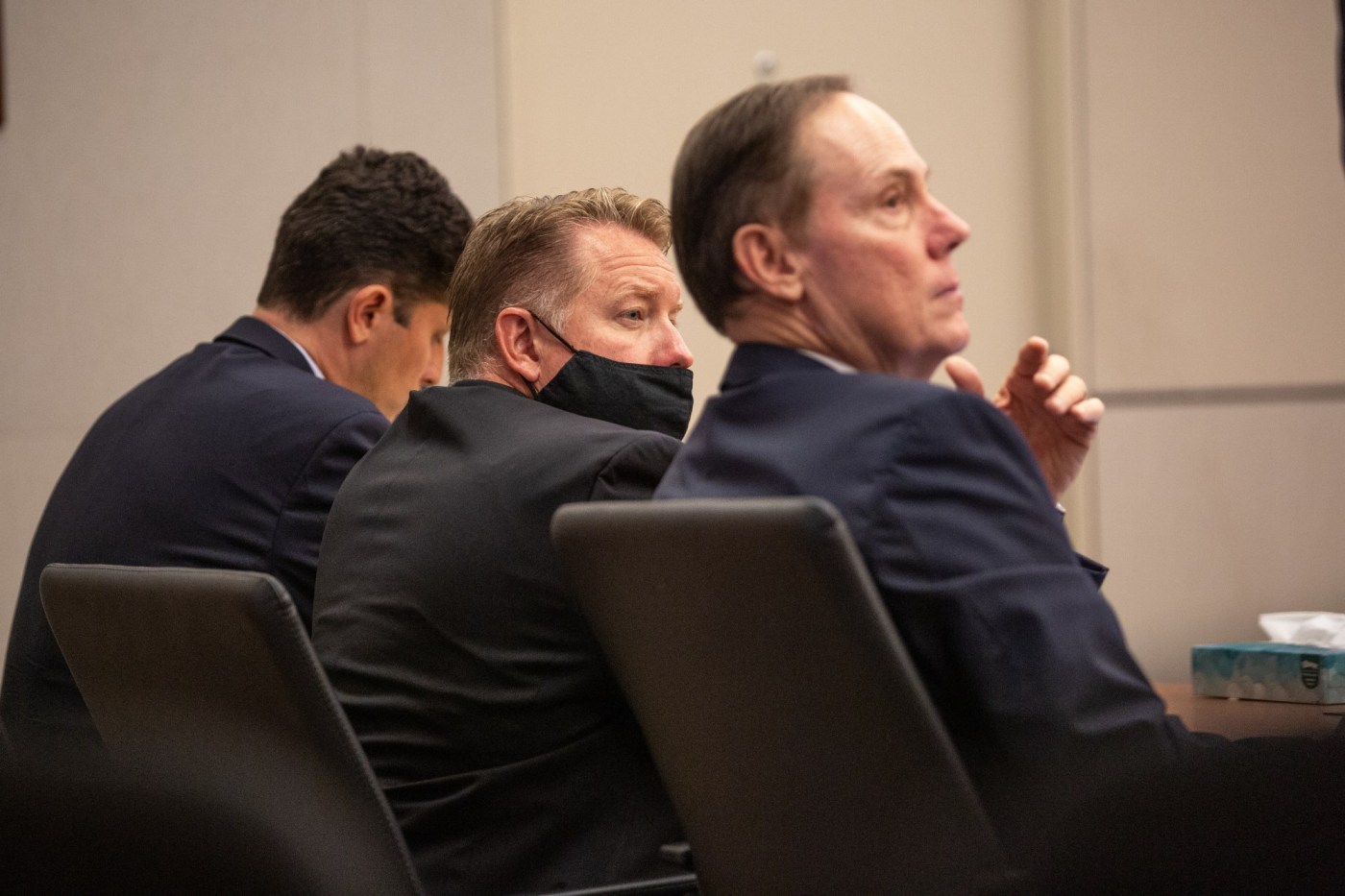
Another major report recommends California charter school oversight reforms after $400 million fraud case
State education leaders, San Diego prosecutors and the state controller have issued new recommendations for improving charter school audits meant to help prevent fraud and abuse in California — the latest in a growing body of calls by experts for reforms.
The report comes from a task force ordered by a San Diego judge in the A3 charter school fraud case, in which charter operators bilked the state of $400 million largely by manipulating student attendance records and funding. San Diego prosecutors who led that case said it highlighted weaknesses in charter school laws and oversight that A3 operators exploited.
It has been five years since the A3 indictment landed, but state policymakers have not yet implemented major changes to charter school laws and policies meant to prevent fraud.
Now there are three state-level reports that altogether recommend scores of changes to state law and policy regarding charter schools and public schools in general. In addition to the one released last week, other reports have been published by the Legislative Analyst’s Office and a statewide organization for charter school authorizers.
The latest set of recommendations comes from a task force ordered by a judge in the A3 case one year ago and focused primarily on the annual financial audits every school district and charter school must submit to the state. Several recommendations echo suggestions made by the Legislative Analyst’s Office six months ago, as well as changes that were proposed in past charter school bills.
RELATED: Prop. 2: A guide to California’s $10B education bond to build and repair schools
“The recommendations will provide a critical road map for ensuring trust, accountability, and transparency in the fiscal and audit functions and operations of our entire K-12 public school system,” state Controller Malia Cohen wrote in a statement.
Audits are supposed to be one of the key ways to flag potentially questionable activity in a charter school. But A3 prosecutors have said that requirements for these schools are limited, and A3 operators were able to manipulate the process by choosing an auditor that provided more favorable audits and even choosing their own audit samples of data related to operating the schools.
The task force was led by Cohen’s office, which is in charge of reviewing annual audits of California’s K-12 schools. The task force was also led by key people from the A3 case, including prosecutor Leon Schorr and investigator David Iorillo of the San Diego County District Attorney’s Office along with the court’s successor receiver for the A3 case.
Members included representatives from groups representing charter schools and school districts, as well as the head of the state’s school auditing agency, San Diego Unified’s director of charter schools and members of California Charter Authorizing Professionals.
Myrna Castrejón, president of the California Charter Schools Association, called the report’s recommendations “a good starting point” and said her group looks forward to talking more about how to implement them.
Auditor qualifications
Just 22 firms conduct 93% of all audits for school districts and charter schools in California, according to the report. That represents less than .01% of all the state’s licensed auditing firms — so if even one firm performs poorly, it could have serious consequences for school audits’ reliability, the report said.
And the bar is low to become a state-authorized auditor of schools. A firm does not have to show qualifications in education auditing to be listed as an auditor for schools in the state accountancy board’s directory. It only needs to be in good standing with the state board and have not been found to conduct audits in a way that violates state education code.
The state’s accountancy board has no regulatory rules specific to school auditors. While there are state requirements that would trigger the State Controller’s Office to do quality-control reviews of school district audits, there are no such requirements that would trigger quality reviews of charter audits.
So the task force recommended several new requirements, including at least 24 hours of training specific to auditing schools in order to become state-authorized. Firms that have already been authorized should also take 24 hours of training every two years, the task force said.
The task force recommends changing state law to require quality reviews by the state controller of school auditors that are newly authorized or haven’t conducted an audit in at least three years, and of all others on a cyclical basis. The task force also says state law should be changed to include provisions for when a firm should lose its authorization to conduct school audits.
Switching auditing firms, late audits
Related Articles
How one preschool uses PAW Patrol to teach democracy
California bans legacy admissions at private colleges, including Stanford and Santa Clara University
California becomes first state in US to ban 6 chemicals linked to behavioral issues in kids from school foods
Billions in Bay Area school bond funding sought on Nov. 5 ballot, but are voters tired of paying the bills?
New law streamlines free tuition at West Valley, Mission colleges
The agencies in charge of overseeing charter schools don’t have to be alerted when a charter school changes its auditing firm.
That’s important because auditor changes could happen for a potentially concerning reason — whether because its auditor found issues or risky practices or because the auditor wasn’t doing a good job.
School districts and charter schools must submit their audited financial reports to the state controller by Dec. 15 every year. State law provides for county education offices to take action when a district is late — but charter authorizers aren’t required to do anything.
So the task force recommends that school auditors be required to notify charter authorizers, county and state education agencies and the state controller whenever a school changes its auditor and when the school’s audit will be late, and why.
What should be in an audit?
Finally, the task force also recommended new requirements for what should be included in charter school audits.
It focused in particular on disclosing ties between a charter school and “related parties.” That includes, for example, a school that is a member of a network run by the same charter management organization, and also connections between a charter school and its vendors.
Significant amounts of state funding from the charter schools are often transferred among related parties as loans or payments for services, but few details of how those parties spend that state funding are publicly available because they say they are not subject to public transparency laws.
“These related business relationships, while legal, may represent a higher risk for potential fraudulent or wasteful expenditures,” the task force wrote.
The task force said charter school audits should have to include several additional disclosures of the charter’s organizational structure, including its board members and management, those of its charter management organization, loans and shared employees within the charter network, the school’s five highest-paid employees and its 25 highest-paid vendors.
The task force also said there should be additional guidelines for how samples are selected for review. For example, auditors should select the samples, not the school, and there should be larger sample sizes.
The group said there should be samples from every school that’s part of a charter network, and there should be attendance accounting samples from every calendar track — some charters enroll students into multiple, simultaneous calendar tracks that start and end at different times of the year, a tactic that A3 operators manipulated to collect more state attendance money than it was supposed to.
Audits should also include sample testing to see whether student attendance was properly recorded and an accounting of charter school attendance claimed, by month and by calendar track.


